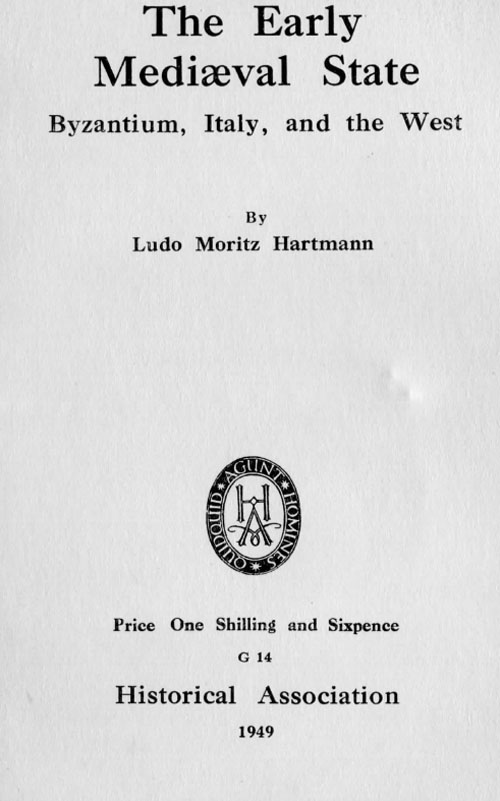The Early Mediaeval State
Classic Pamphlet

Byzantium, Italy & the West
In order to define the constitution of a state, theorists and historians still apply Aristotle's categories; monarchy, aristocracy, and democracy. This method has obvious limitations; there can be no doubt that the formal sovereignty either of an individual or of a minority or a majority does not of itself suffice to classify a aristocracy, and democracy with the modern counterparts, which was so popular during the eighteenth century, is not justified by historical facts. Moreover, Aristotle's political theory was based only on one form of state, the Greek city-state, or polis. This polis was self-sufficient by definition; even intermarriage between citizens of different city states was considered by Aristotle a deviation from normal custom.
Legal systems belonging to the next city-state beyond the border were recognized only by special agreement. There was only a minimum of ‘international law' to check action by one city-state against another; no right protected prisoners-of-war, who were treated as chattels; consequently slavery, the existence of men deprived of rights and excluded from citizenship, was taken for granted as a law of nature. The distinction between citizens and non-citizens was the foundation upon which the Greek city-state was built. The unfree were the producers of food; the free, who alone were politically active, formed the warrior-class.
The main characteristic of the ancient republics, that ‘the assembled host is the highest sovereign and that full citizenship is restricted to men who carry arms,' was the result of this legal differentiation between the warrior class and the working population...
This resource is FREE for HA Members.
Non HA Members can get instant access for £3.49

